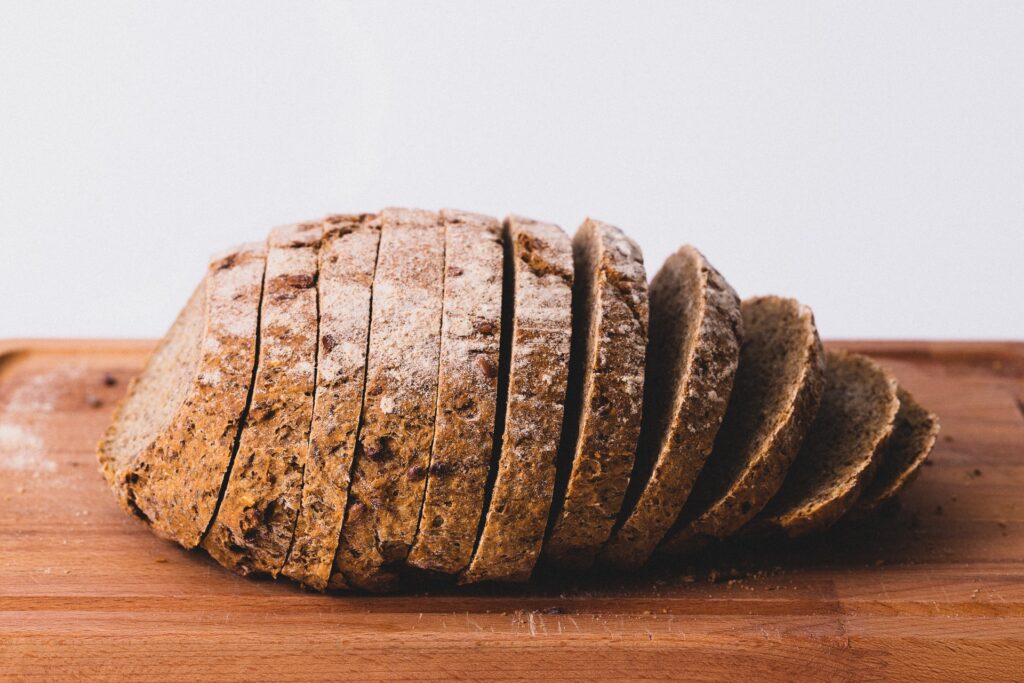“Jesus answered, “It is the one to whom I will give this piece of bread when I have dipped it in the dish.” Then, dipping the piece of bread, he gave it to Judas, the son of Simon Iscariot.” – John 13:26
The “sop’ is a Hebrew tradition of communion and fellowship. It is basically eating bread dipped in a bowl of broth and sharing it with others. In Hebrew tradition, you can either dip the bread in the same bowl and or not. The dipping in the same bowl signifies that you are intimately connected with a person. Basically, the sop speaks about the relationship you have with someone and shows the level of closeness you have with others. If you were to eat after somebody’s bowl, it is a sign that you are indeed their close friend.
In John 13, we read about Jesus sopping with His disciples in the upper room. They dipped their bread in the same bowl which shows the intimate relationship that Jesus had with His disciples. He considers them closest to Him. It was the time when Jesus was nearing His arrest, betrayal, and crucifixion and the sop that took place that night has a significant message that can change the way we view God’s love if we will take the time to understand it.
An Extension of God’s Love
The sop that took place in the upper room was intended for Jesus and His disciples to have the close fellowship and understanding of what was about to take place. It was a gathering to experience an even more close fellowship with Jesus. Nearing His death, Jesus desired to have His closest friends with Him. Calvary was looking at Him and the atmosphere suddenly became heavy. But sadly, the disciples did not have any perception about what was going to take place.
(John 13:22). As Jesus was sopping with his disciples, Jesus all of a sudden gets troubled in His spirit and says that one of them is going to betray Him ( John 13:21). Knowing the pain at Calvary was already excruciating, Jesus’ misery intensifies because one of His trusted disciples decides to betray Him, which is almost too much to bear.
When John asked Him who it was, Jesus answered: “It is the one to whom I will give this piece of bread when I have dipped it in the dish.” It wasn’t because Jesus wanted to condemn Judas. He didn’t even call His name out. He didn’t point His finger at him and accused him. That act of giving to Judas the bread that He dipped in His bowl was an act of Jesus’ great love for Judas. He is extending His love to Judas. Jesus was reaching out for Juas with the deepest kind of love. He was hoping that Judas would realize His great love for Him through the sop — that even though Judas was planning on turning him into the enemy, Jesus still considered Him as one of His closest friends, as proven by the sop. At this point, Judas could have still repented. Because it was only after the sop that Satan entered into him (John 13:27). The hand of love was extended from Savior’s hand to the lips of a man whose intentions were vile, vain, and totally ungodly, and it was an opportunity when Judas could have repented. He was not yet possessed. He was not yet totally controlled and driven by Satan. It was only AFTER THE SOP that Satan entered him. But sadly, Judas didn’t accept God’s gesture of love and mercy toward him. He rejected it.
The Sop’s Significance to Christians Today
Jesus was warning Judas because Jesus knew Judas was in trouble. Jesus knew Satan wanted to possess him, and through the sop, He offered Judas a way out. Jesus doesn’t do it by hollering out His name. He did it through an act of love — by dipping His bread into the broth using the same bowl and putting it into the mouth of Judas, to the man who sold Him into death. It was like Jesus was saying; “Here is the bread of life.”
What is God teaching us through this story? NEVER REJECT GOD’S LOVE. Don’t follow after Judas.
Did you know that rejecting God’s love over and over again opens the door for Satan and evil to enter your life? We are literally giving the enemy a wide open door, and a legal right to harm us each time we refuse to accept God’s love, forgiveness, and mercy, when we constantly harden our hearts and refuse to repent. We often can reject God’s love that is extended to us through people.
In order to avoid this, we need to listen to corrections and reproof. God disciplines those whom He loves (Hebrews 12:6). Let us not wait before it’s all too late. Now is the time to return to God. When the Holy Spirit can still admonish us, when we can still receive correction and reproof, it is where God still guards the door of our hearts.
Remember the sop. Remember what happened after the sop. Remember Judas. Remember God’s great gesture of love. Remember that it is rejecting the love of God that swings the door wide open to evil power. But if our hearts are tender, God reaches out to us and if we want forgiveness, God can always meet us. Today, while you hear His voice, do not harden your hearts. Don’t reject God’s love (Hebrews 3:8-15). Give us a heart of flesh, Lord. Break our hearts of stone today!


